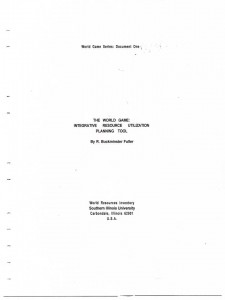
Deliberative Public Engagement: Nine Principles
Posted by Sandy Heierbacher | August 18th, 2011
Deliberative public engagement is a distinctive approach to involving people in decision-making. It is different from other forms of engagement in that it is about giving participants time to consider and discuss an issue in depth before they come to a considered view. The aim of this 18-page background paper (2008) from Involve and the National Consumer Council is to encourage and support deliberative public engagement in public policy.
Deliberation itself – where a range of people learn, discuss and work out solutions together – is not new. Forums, advisory groups, partnerships and some forms of consultation have done this for years and are becoming increasingly sophisticated. More recently, citizens’ juries and large-scale citizens’ summits have found favour with government and public service providers at both local and national levels.
Involve and the National Consumer Council (NCC) believe that deliberative public engagement can be valuable in helping to create better public services, promote social cohesion and foster a thriving democracy. There is already good practice throughout the UK, and the full potential contribution of deliberation to improving the quality of decisions and policy solutions, and to enhancing representative democracy is becoming clearer as experience grows.
The government and other public bodies are currently developing general guidelines on public and stakeholder engagement – making it timely for Involve and NCC to draw on the growing body of learning and evidence to contribute a set of specific principles on deliberative public engagement from outside government.
This is far from being the last word. Over the next year Involve and NCC will continue to monitor the field, listen to feedback on the value and relevance of these principles, and consider the potential need for more detailed guidance. In the mean time, we hope our work will contribute to the already-flourishing debate on the role of deliberative public engagement in Britain today.
Phi Beta Iota: The 18 page document is available in English, French, and Turkish. The nine principles of public engagement discussed in the document are:
- The process makes a difference.
- The process is transparent.
- The process has integrity.
- The process is tailored to circumstances.
- The process involves the right number and types of people.
- The process treats participants with respect.
- The process gives priority to participants' discussions.
- The process is reviewed and evaluated to improve practice.
- Participants are kept informed.
See Also:
Tom Atlee: Citizen Deliberations – Chart and Options
Participatory Budgeting Practices, Games, Resources
Memoranda: Policy-Budget Outreach Tool






